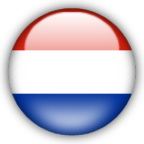|
- - -
The Netherlands
BASIC INFORMATION ABOUT THE STRUCTURE OF SCIENCE IN THE NETHERLANDS
The Ministry of Education, Culture and Science (Ministerie van Onderwijs, Cultuur en Wetenschap - OCW) coordinates science policy for the entire national government. The aim of Dutch science policy is to create a research climate that fosters world-class scientific achievements and promotes the welfare and well-being of society at large. In order to achieve that goal, Dutch science policy focuses on:
The acquisition of additional scope and resources for fundamental research; Strategies to promote innovation;
Strengthening the self-regulating powers of the scientific community; Improved career opportunities for young researchers, particularly women.
The public science and research community in the Netherlands encompasses 14 universities, the Royal Netherlands Academy of Arts and Sciences (KNAW) and its 18 institutes, the Netherlands Organisation for Scientific Research (NWO) and its 9 institutes, 5 Large Technological Institutes, 6 Leading Technological Institutes, the Netherlands Organisation for Applied Research (TNO) and its institutes, the agricultural research institutes of the DLO Foundation, a number of state-owned research and advisory centres and several other institutes in the fields of health and the social sciences. For more information see Science, Technology and Innovation in the Netherlands. Policies, facts and figures 2006 at http://www.minocw.nl/documenten/Science-Technology-Innova-tion-brochure-2006.pdf
The Netherlands Organisation for Scientific Research (Nederlandse Organisatie voor Wetenschap-pelijk Onderzoek NWO) stimulates and funds research in every conceivable scientific discipline and facilitates innovations. It also strives to cultivate enthusiasm for scientific re¬search and its results and to communicate this to a broad public. NWO has the following statutory mission:
NWO is responsible for enhancing the quality and innovative nature of scientific research, and for initiating and stimulating new developments in scientific research;
NWO mainly fulfils its task by allocating resources;
NWO facilitates, for the benefit of society, the dissemination of knowledge from the results of research that it has initiated and stimulated;
NWO mainly focuses on university research in performing its task.
As in other countries, business enterprises and the government are the main sources of R&D funding in the Netherlands. They are responsible for about 90 percent of the total R&D. However, the share of funds from abroad increased from 2 percent in 1990 to more than 10 percent in 2003. Compared to other countries, the share of Dutch government funding is relatively high. On the other hand, the share of business enterprise funding is relatively low.
Some of the government funding is allocated through intermediary organisations: NOW and KNAW allocate funds for the Ministry of Education, Culture and Science; SenterNovem operates as an agency of the Ministry of Economic Affairs.
SUMMARY REVIEW OF SCIENCE & RESEARCH COOPERATION WITH BELARUS
A number of Agreements and Protocols on cooperation is signed on the level of scientific institutes and universities of two countries.
Since 2001 through the Calls of Belarusian Republican Fund on Fundamental Research (BRFFR) 5 Belarus-Netherlands research projects bilaterally financed have been and are being fulfilled.
OPPORTUNITIES FOR SCIENCE & RESEARCH COOPERATION THE NETHERLANDS - BELARUS
To establish structural long-term collaborative relationships in the field of science and technology that are of mutual advantage to both countries;
To further enhance the participation of joint Dutch and Russian scientists and research groups in international scientific networks;
To provide young scientists with opportunities to advance their careers with an international perspective.
The main funding opportunities currently open for science and research cooperation between Belarus and Netherlands relate to the EU programmes, namely the Seventh Framework Programme (FP7) and the Competitiveness and Innovation Programme (CIP). (See chapter on European Community Research).

© National Academy of Sciences of Belarus, 2011
|
|


